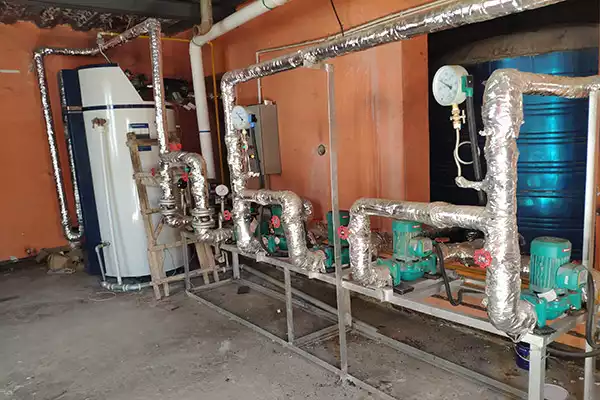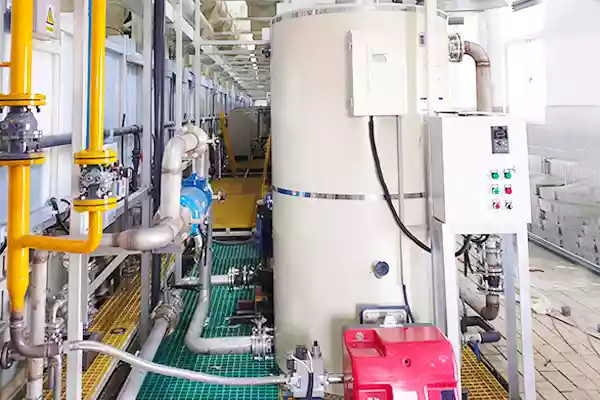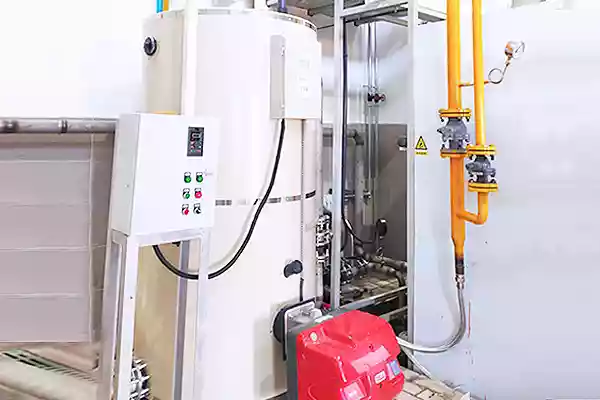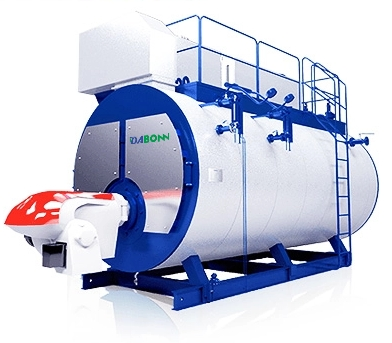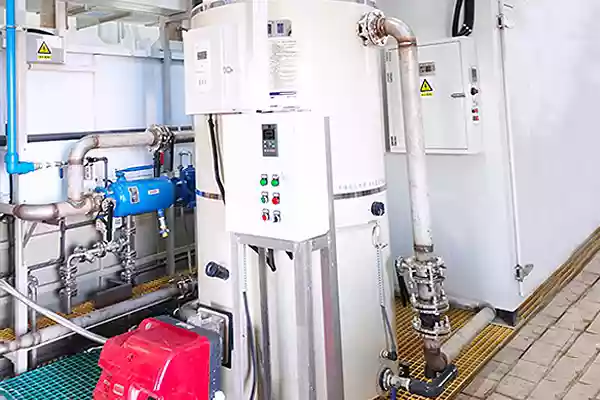
Introduction
If you are considering installing a tankless water heater, you might be wondering if it is the same as a boiler. Boilers and tankless water heaters do have their differences, but they can both be used for heating your home’s hot water. Here we will go over everything that you need to know about these two types of heating systems so that you can make an informed decision about which one is right for your family.
Is a tankless water heater the same as a boiler?
No. While both a tankless water heater and a boiler are hot water heaters, they are completely different devices. A tankless water heater heats water on demand, while boilers heat water continuously.
Working principle
To know the difference between a tankless water heater and a boiler, you first need to understand how they work.
A tankless water heater works uses a heat exchanger by heating the incoming cold water until it becomes hot. The temperature is controlled by a thermostat, which regulates when the gas burner turns on and off. It does not store any hot water, so you can use as much or as little of it as you need at any given time.
The boiler system works differently. It heats up water in a large tank and distributes it through pipes throughout your home or building (instead of heating only what you need). The boiler itself heats up via combustion with natural gas or propane gas. In some cases, oil or electricity, and then pumps that hot water into radiators throughout your house for immediate use.
Efficiency
Tankless water heaters have higher efficiency than boilers. A tankless model may have an efficiency rating as high as 100%, while boilers typically have a rating between 80% and 90%. This means that for every unit of energy used by the boiler, you can expect more hot water from your tankless heater.
Lifespan
Generally, the average service life of tankless water heaters is about 10-15 years, and the average service life of boilers is about 20-25 years or even longer. The reason for this difference in lifespan is that tankless models use less energy than boilers and therefore don’t need to be replaced as often. If you’re looking for longevity in your home heating system, a boiler may be a better choice than tankless technology.
Installation cost
When it comes to installation, tankless water heaters are easier to install than boilers. They’re also less expensive because they require fewer parts and less labor.
Tankless Water Heater:The average cost of installing a tankless water heater is about between $1,200 and $2,500. This includes labor costs for installation and plumbing work as well as materials for new pipes or other tools needed during the process.
Boiler: Installing a boiler can be very expensive depending on how complicated your system needs to be. They are generally priced between $6-$10 per square foot (PSF) of space being heated by them
Required maintenance
Tankless heaters don’t require nearly as much maintenance. Because there’s no storage tank where sediment can build up over time. Therefore you only require cleanings or replacement parts like those found in traditional boilers tanks.
However, Boilers are more maintenance-intensive than tankless water heaters. Ensure they’re working efficiently and safely, with annual inspections from a professional required by law. This includes checking the pilot light and igniter, examining flue pipes for cracks or corrosion, and Cleaning out condensate pans with soap and water. Additionally, you’ll need to replace filters on a yearly basis as well as replace any worn-out elements in order for your system to function properly.
What is the advantage of a tankless water heater?
Instant hot water: With a tankless model, you’ll never run out of hot water again! When you turn on the tap in your bathroom or kitchen sink, it instantly starts flowing at full temperature with no wait time. A big advantage over traditional storage tank systems which can take minutes or even hours to achieve optimal temperatures after being turned on.
No storage tank: Tankless models don’t store any extra water at all. Instead, they heat up only what you need right now. This means no wasted energy or space in your house!
No wasted energy: Tankless water heaters use less energy than traditional storage tank models. They don’t store hot water and only heat what you need when you need it. so they use less electricity and gas to do their job.
No wasted water: The same principle applies to how much water gets used with a standard tanked system. The more people who use hot showers or take baths in your house, the more money and energy go down the drain (and into heating costs). With a tankless system in place, everyone can have their own personal source of hot water at all times without wasting any resources on heating unused portions of the tank.
No maintenance required: Since there aren’t any tanks involved with this type of setup. Just pipes that deliver heated fluid directly from one point to another. There aren’t any parts or filters needing regular replacement or cleaning either!
What is the disadvantage of a tankless water heater?
As with any product, there are disadvantages to using a tankless water heater. The most obvious one is that they have a smaller capacity than boilers do. This means that if you have a large household or frequent visitors who need to take showers or wash dishes, then the tankless option may not be right for your needs.
In addition to having smaller capacities than boilers do (which makes them less suitable for larger households). Tankless units also tend to last less long than boilers do: around 15 years on average compared with 25 years or more for some boilers.
Can a tankless water heater replace a boiler?
In some situations, a tankless water heater can replace a boiler. For example, if you have an older home with no central heating system in place and you want to install one for energy efficiency purposes, then it might make sense for your new installation to include both hot water and heating functions.
In this case, installing a tankless water heater as part of your new central heating system would allow for dual functionality: providing both hot water and heat through one unit (the tankless).
Do you need a boiler or a tankless water heater?
If you have a large family and your home is not very big, a tankless water heater may not be the best choice. The reason for this is that tankless heaters are more expensive than boilers and they require more maintenance.
If you have a small family and your home is not very big, then it might make sense to install an on-demand hot water system. On these systems, there are no storage tanks so they can provide instant hot water without any waiting time between uses (i.e., no more waiting while someone takes their shower). These systems also don’t require any extra space in your basement because they are installed above ground level where there’s plenty of room for them!
How much do tankless water heaters cost?
If you’re looking to install a tankless water heater in your home, you should know that these units are often more expensive than traditional ones. The upfront cost of a tankless heater can range from $5,000 to $12,000. However, this will depend on how much work needs to size, brand, and other factors.
The annual operating costs vary depending on whether you choose electric or natural gas as your fuel source. The electricity is cheaper but requires an electrical outlet nearby. Although natural gas has higher initial costs. But lower operating expenses over time because of its lower price per BTU.
Let’s say that your current electric water heater costs $10 per month in electricity bills and lasts 10 years before breaking down (that’s about $1,200). If this is the case for your household, then installing an electric tankless unit could pot Essentially save around $1,000 over those 10 years and even more.
Conclusion
When it comes to choosing between a tankless water heater and a boiler, there are many factors that you can consider. You should take into account the working principles of both systems, their efficiency, and their lifespan. In addition, installation costs as well as maintenance required will also affect your decision-making process. If you want to learn more about the details of tankless water heaters and boilers, please contact us at +0086 186-2391-5479.
Get your best price
Quickly compare 3 FREE quotes
- Engineer quick quote
- The overall delivery speed is fast
- Financial choice
- Low installation costs and cost savings
25 years+ of boiler R&D
More than 20 innovative technologies
